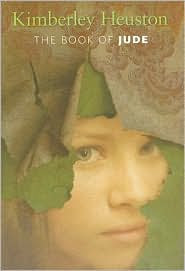
In Lindsey's family, she is the good one. She takes care of her father, serves as a surrogate mother for her rebellious sister, reassures her mother (who has moved away and started a new family), and keeps silent about her grief for her dead brother. Despite this dramatic challenge, she manages to get good grades, the respect of her teachers, and the admiration of her peers. But inside, she is falling apart. And when she starts stealing things to soothe her pain, the situation quickly reaches a breaking point.
Full of lots of good ideas (and maybe a bit too many explanatory behavioral factors!) this slim book is maddening. It read largely like a abstract, as if Hoffman had started the book and written all of the key parts but never fleshed them out. There is much to like in this book and the character is understandable and sympathetic, but the novel could have been so much more expanded. And in doing so, it would have been a better read because we would have developed a deeper understanding of Lindsey's story and the causes of her issues. The current result looks more like a rush job.

















